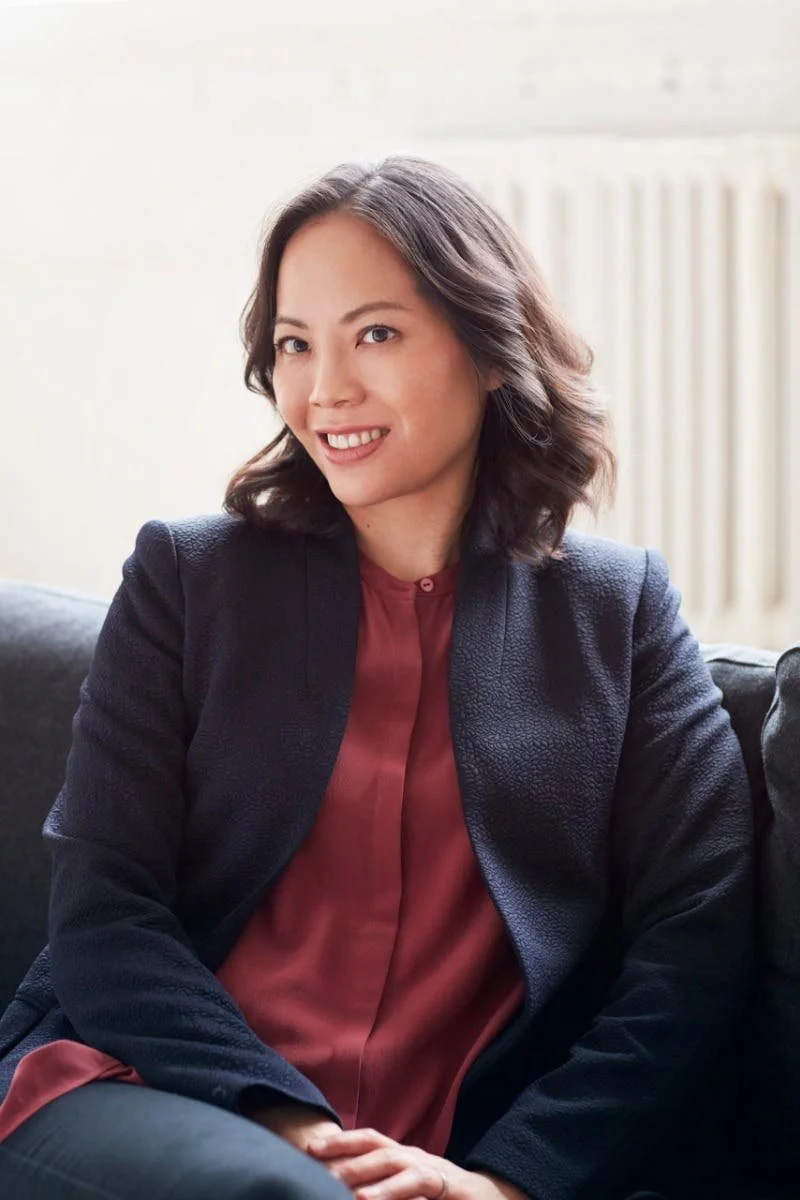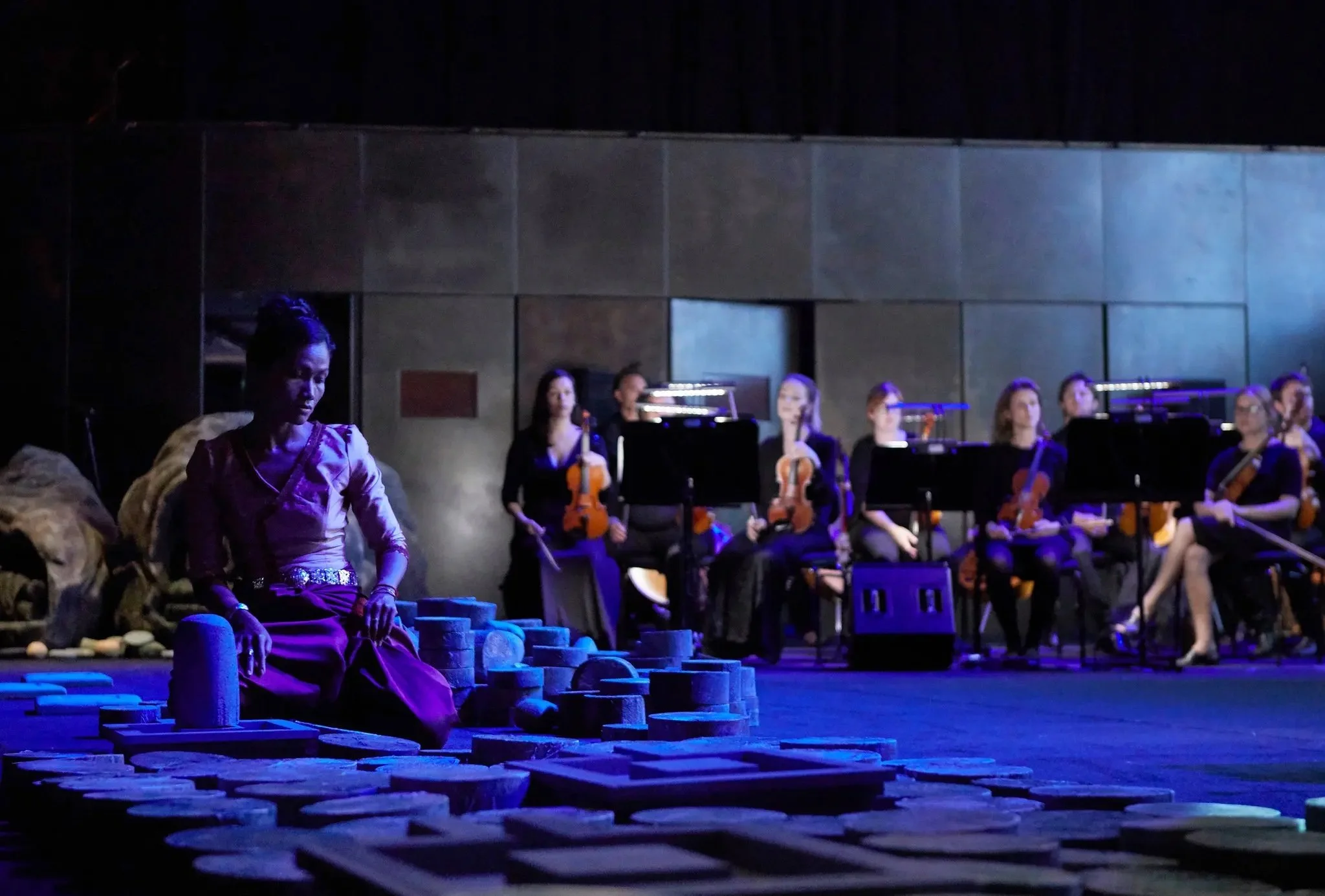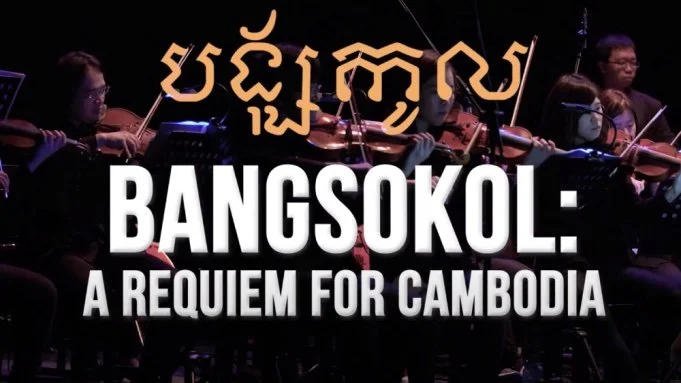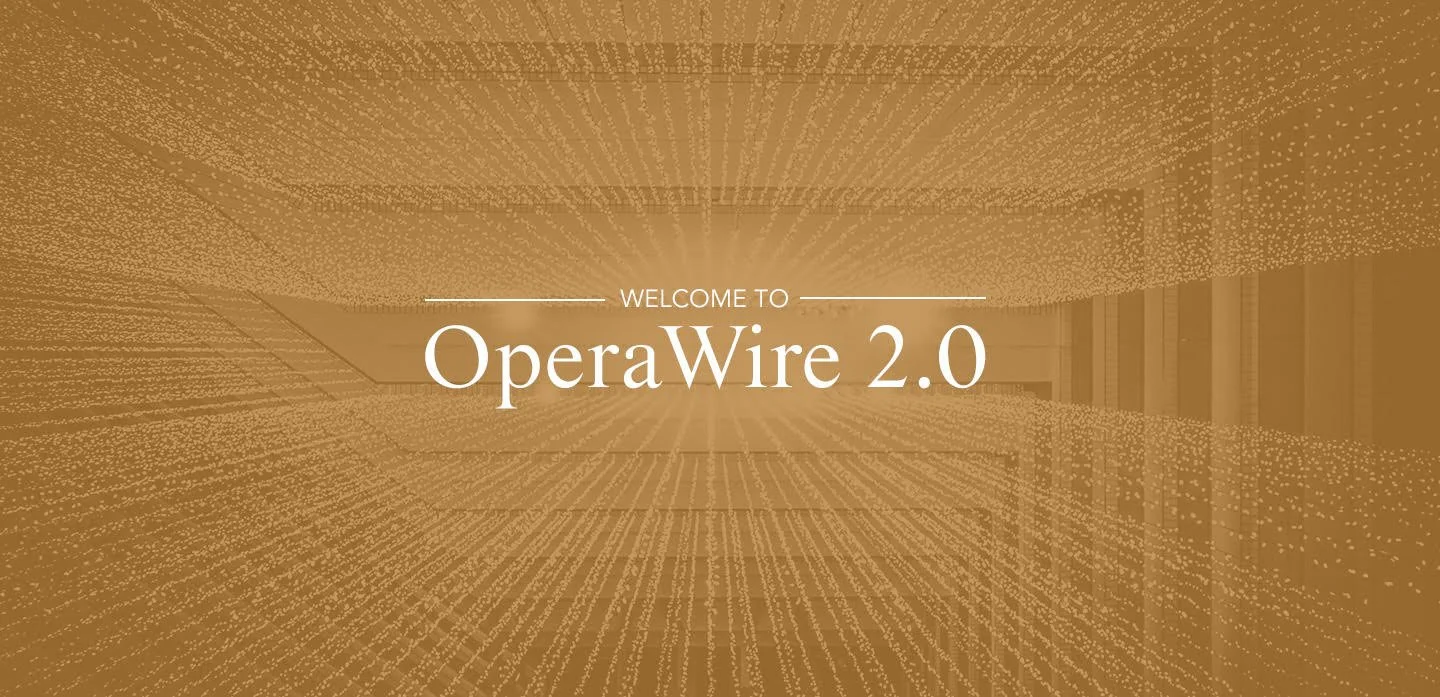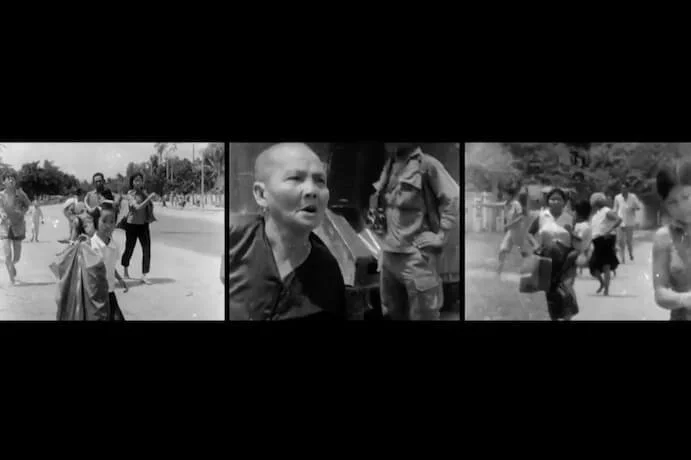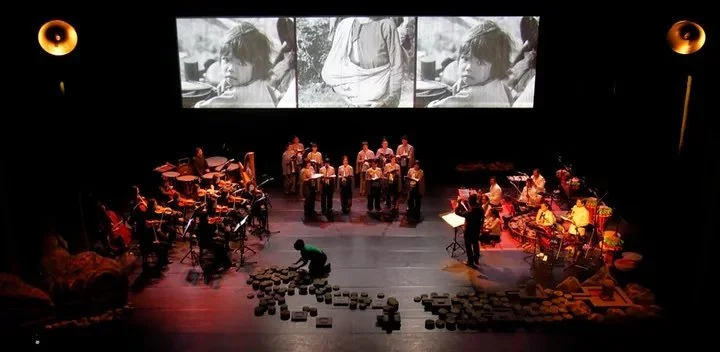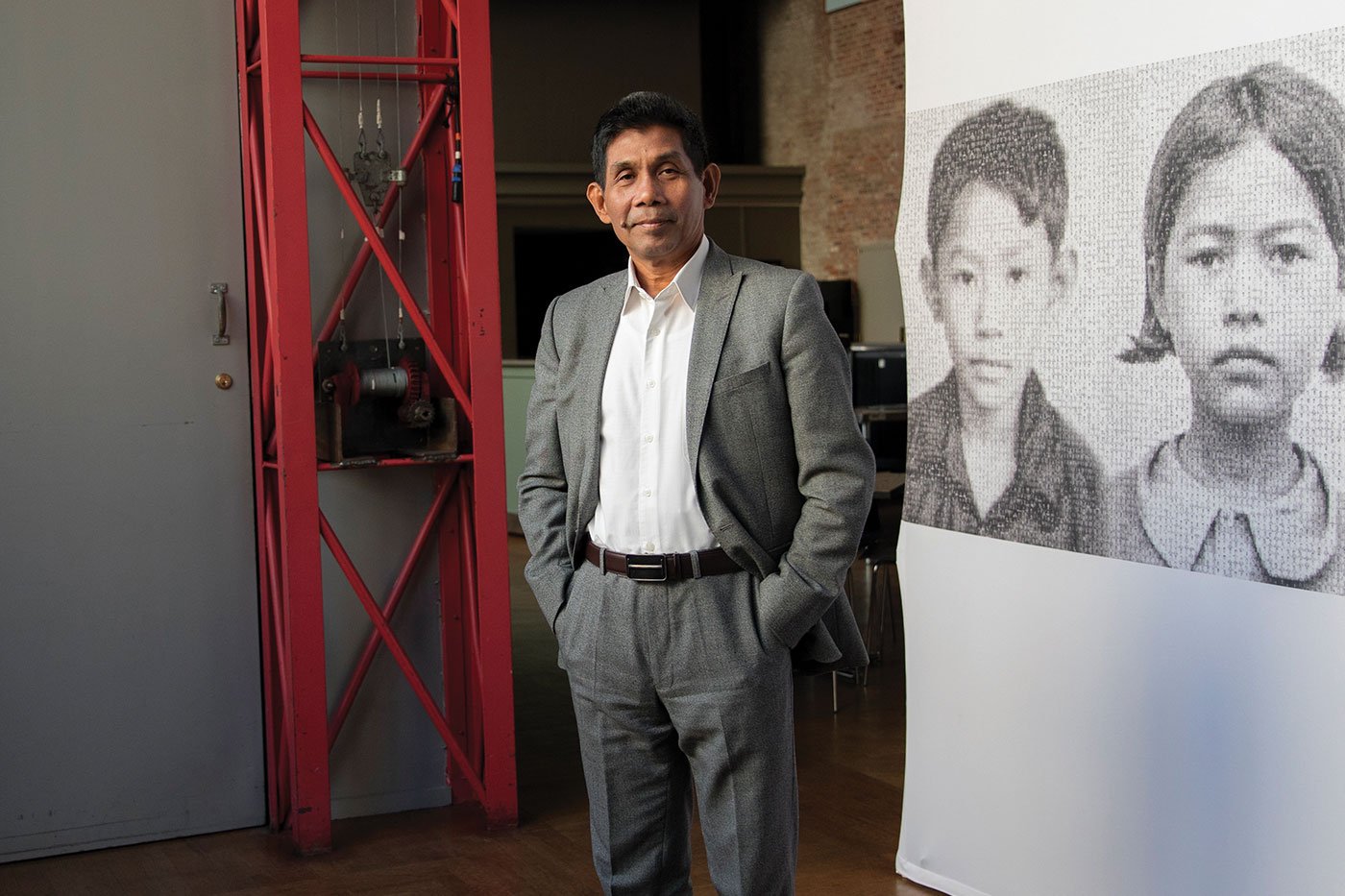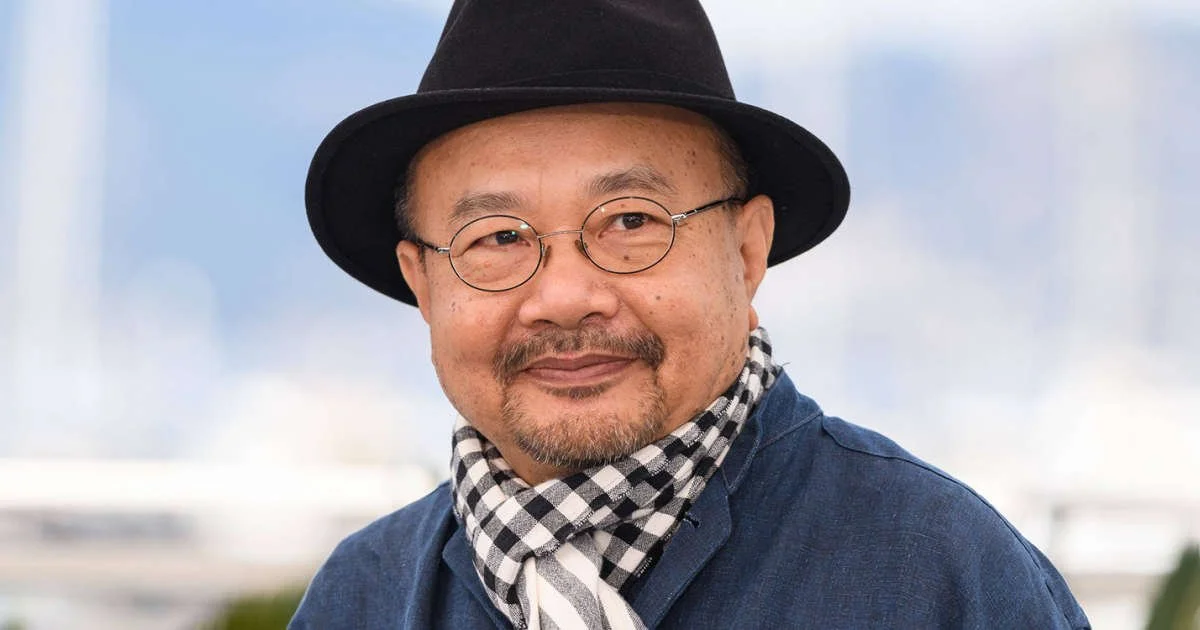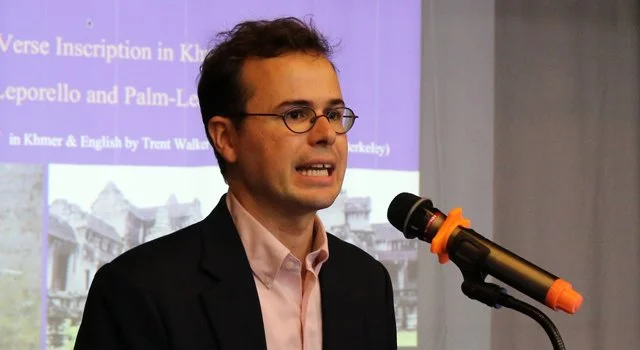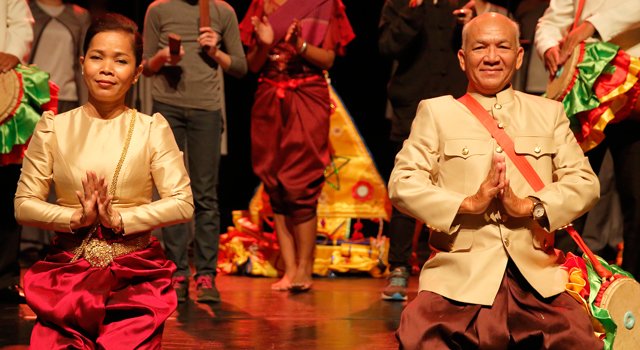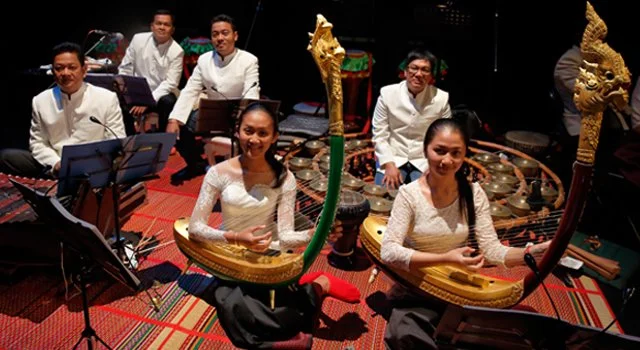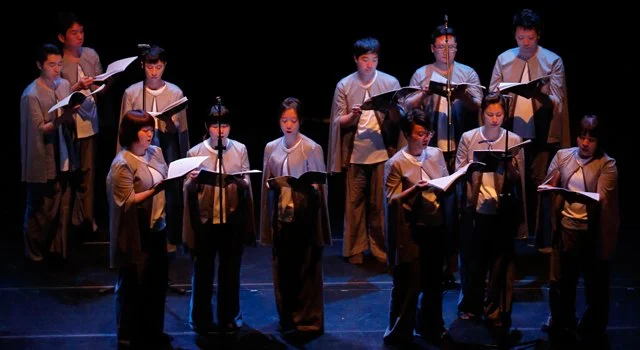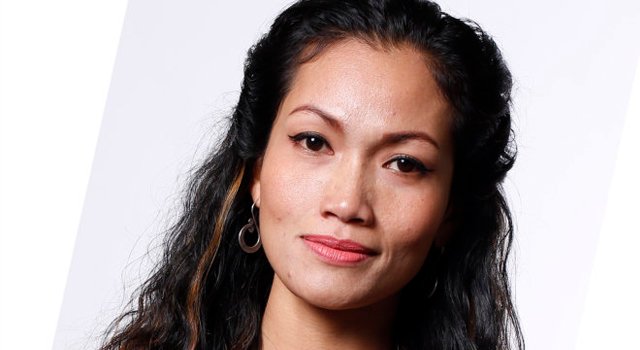“Bangsokol stands on its own as an extraordinary musical experience that brings cultures and people together.”
(Variety)
About the Album
Released May 20, 2022 on Entertain Impact and Cambodian Living Arts
Entertain Impact and Cambodian Living Arts released their new album, Bangsokol: A Requiem for Cambodia, on May 20, 2022, from internationally acclaimed Cambodian composer and survivor of the Khmer Rouge, Him Sophy; and featuring Metropolis Ensemble, Cambodian Ensemble, Taipei Philharmonic Chamber Choir, Trent Walker (libretto), and Andrew Cyr (conductor).
Metropolis Ensemble participated in Arts & Healing: Bangsokol Virtual Festival on December 12-20, 2020, including premiere of new music inspired by Bangsokol and a ritual dance performance.
The US Premiere of Bangsokol: A Requiem for Cambodia featured Metropolis Ensemble, led by conductor Andrew Cyr (also with the Taipei Philharmonic Chamber Choir and traditional Khmer vocalists and instruments), performs the US premiere of Bangsokol: A Requiem for Cambodia, on December 15-16, 2017 at Brooklyn’s BAM Howard Gilman Opera House and December 19-20, 2017 at Boston's Emerson Paramount Center.
Bangsokol is the first major symphonic work — “a mournful lullaby" (NYTimes) — that addresses the traumas of the Cambodian genocide of the late 1970s. May 20 is Remembrance Day in Cambodia, and this album offers a respite for bereavement to those who are processing the loss of loved ones. We invite you to share in this moving meditation, to sit with the sounds, and honor those who you choose to remember through thought or by mention.
Recent Reviews
“When I composed the requiem, I re-lived the feelings I had during the Khmer Rouge times. It was hell on earth. The requiem needs to be experienced around the world so that everyone understands that tragedy is a shared experience, and there is hope in creation.”
Him Sophy
Developed in collaboration with Metropolis Ensemble, Him Sophy’s Bangsokol project is a vital act of memory for the peoples of Cambodia.
WATCH: A special YouTube Live premiere of Bangsokol: A Requiem for Cambodia on Remembrance Day (May 20).
Project In-Depth
The work itself, from conception to creation to presentation, is an act of cultural renewal; it aims to return the arts to their place at the heart of Cambodian society. While the world continues to witness new acts of genocide, war, and destruction, Bangsokol urges us to remember the scars of the past so that we can learn how to forge a new path in the present. It will stand as a firm and visible memorial for peace honoring all victims of violent conflict and act as a medium for societal dialogue and peace education.
-
1. wandering souls / utterly alone
2. please come listen / the roots of wars
3. my dearest, my child / they’ve snatched you away
4. keeping you is no gain / losing you is no loss
5. in the silence of the forest / you’ll be thrown away
6. awaiting ambrosia / for all the souls
7. the white bangsokol shroud / once this skin is shed, bliss arises
8. this body is pain / let it all go
9. wandering souls / coming back to life
-
HIM SOPHY — In 1970, the Civil War started in my country and my family fled from one village to another. During day time, we were afraid of bombs, at night we were worried about the Khmer Rouge soldiers asking us for information. We were living in misery and fear.
The Khmer Rouge evacuated people from city and created a tragedy for the whole country. We were working like animals in the fields with not enough food to eat, and they were killing people savagely. In 1976, I was working in a mobile youth camp where I got only 18 kernels of corn to eat; everyone got the same. I couldn’t walk far; I looked like an old man, but I was just a young boy.
I saw with my own eyes people being beaten to death with sticks. I saw people pulling carts like cows, emaciated from working long, tough hours with no food. My eldest brother was killed by Khmer Rouge soldiers—and later my fifth eldest brother was also murdered. There were countless memories from the dark time that was the Khmer Rouge regime.
Returning to today, we see still confrontations between world leaders, we see people threatening nuclear war—seemingly without thought for the consequences for people all over the world. My generation in Cambodia experienced war—I lost my family, I saw people killed. I don’t want that again for anyone.
As a composer, as well as a human being, I want to share these feelings through Bangsokol: A Requiem for Cambodia. It is dedicated to all those who died during the war in Cambodia, and in wars and conflicts around the world. May their souls and spirits rest in peace. I wrote Bangsokol to help bring peace to the world—today and in the future.
—
RITHY PANH — Bangsokol is a beautiful work, complex and challenging. Him Sophy and I lived through the Khmer Rouge regime, and with this requiem we wanted to present to audiences— both in and outside Cambodia—the country’s harrowing modern history through traditional music, reinvented.
Bangsokol is an attempt to honor the Khmer Rouge’s victims by resuscitating the cultural heritage that the regime nearly wiped out, and passing it on to the next generation. Bangsokol may be a requiem, but it is less about death than about bringing the past back to life and restoring dignity to the disappeared. To create is to live.
Bangsokol—which was conceived, written, and performed by Cambodians—is yet more proof that our people’s capacity for imagination and creation could never be destroyed.
A German philosopher is sometimes quoted as saying that it is barbaric, or impossible, to write poetry after Auschwitz. It is not. Writing poetry in the face of horror is a right—and to some of us it feels like a duty, toward both the dead and the living. Art helps transcend atrocity by giving expression and meaning to suffering that is too great to explain. Art is more than an act of remembrance; it is an act of resistance, and of healing.
Taking the full measure of the Khmer Rouge’s crimes means looking beyond its total casualty toll: at least 1.7 million dead. It means remembering that this vast, anonymous number represents one person’s unique story and another’s and another’s and another’s... I hope that Bangsokol will allow each member of the audience to remember the dead as individuals, and intimately.
Some stars in the night sky are long dead by the time we see their light. Much like them, the bright souls of the Khmer Rouge’s victims are visible through the darkness of history.
—
TRENT WALKER — Bangsokol: A Requiem for Cambodia offers several Buddhist ways of responding to the horrors of the Khmer Rouge. The most common response to death in Buddhism is to contemplate it directly. The libretto invokes impermanence, suffering, and the loss of all we think of as “I” or “mine” as inexorable forces in human life. Buddhist rites for the dead emphasize the importance of recognizing our own mortality and reorienting our life in this light. Many Cambodians believe that such reflection on death brings wisdom to the living and benefits that can be dedicated to the deceased for their easeful passage to the next world.
Cambodian bangsokol rituals are traditionally performed for the sick as well as the dead. Such “skin-shedding” (bok sbaek) rites assume that the gift of the white shroud—the gift of one’s own body—embodies the regenerative power of life and the body’s capacity to heal. By taking on the part of a corpse, shedding their skin, and facing death with open eyes, the living may find peace. The libretto brings us face-to-face with violence and loss, providing an opportunity to remember, contemplate, and begin anew.
The libretto ends, as do most Buddhist rituals, with prayers of goodwill for all beings. This boundless compassion for all, including those who have harmed us, is an essential Buddhist response to violence. Such an extension of kindness is not the same as forgiveness and is not a replacement for justice. It is a recognition that hatred ceases only through love.
Bangsokol: A Requiem for Cambodia honors the countless private rituals and acts of memorializing performed by Cambodians since 1979. Many of these rituals were bangsokol rituals performed on behalf of those who suffered and died under the Khmer Rouge. The requiem is therefore by no means entirely new or unique. It gives voice and respect to what Cambodians have already done over the past four decades to reflect on suffering, death, healing, goodwill, and the memory of those who perished.
-
Music developed in collaboration with Metropolis Ensemble Original idea by Charley Todd. Commissioned by Cambodian Living Arts. Produced by THE OFFICE performing arts + film. Additional commissioning support provided by BAM 2017 Next Wave Festival, The Rainbow Initiative, Ministry of Culture Taiwan (R.O.C.), Taipei Philharmonic Foundation for Culture and Education, The Charles E. Culpeper Arts & Culture Grant, Rockefeller Brothers Fund, the Australian Embassy in Cambodia, and Asia TOPA/Arts Centre Melbourne.
Him Sophy
Composer
Dr. Him Sophy was born into a musical family in Prey Veng Province, Cambodia in 1963. He started learning the piano in 1972 in Phnom Penh, but was forced out of the city in 1975 for the duration of the Khmer Rouge regime. After the fall of the Khmer Rouge, he returned to his musical studies, at Cambodia’s Secondary School of Fine Arts. In 1985, he won a scholarship to the Moscow Conservatory of Music, where he studied and gained his PhD. He returned to Cambodia in 1998, and opened the Him Sophy School of Music in 2013. His previous works, including the acclaimed rock opera Where Elephants Weep, have demonstrated an unparalleled facility for bringing Western and Khmer musical worlds into intimate conversation. This time, Sophy combines a Western chamber orchestra and chorus with Khmer instrumentalists and vocalists. These traditional musical forms are crucial for honoring the dead; unfortunately, live performances are seldom heard in the capital and rapidly disappearing in the countryside.
Cambodian Living Arts
For almost 20 years, Cambodian Living Arts (CLA) has worked tirelessly to regrow Cambodia’s arts sector and provide opportunities for artists to write the story of the country’s future. Founded in 1998 by genocide survivor, musician, and peace advocate Arn Chorn-Pond, it initially focused on the preservation of endangered art forms and rituals. As 90% of Cambodia’s artists did not survive the Khmer Rouge regime, the arts that had been transmitted between generations were in danger of being lost forever. Over the following two decades, the work of CLA evolved with the development of Cambodia and its rapidly re-emerging arts sector. They began to offer scholarships and fellowships, to create jobs for artists, and to support research, international exchanges, and networking. CLA’s mission today is to be a catalyst in a vibrant arts sector, inspiring new generations. They are working to integrate arts and culture into the Cambodian education system, and to build links with arts communities around the region. Aiming to foster creativity and innovation in the sector, CLA sees arts and cultural expression as essential to a thriving future for Cambodia.





